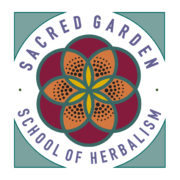UPCOMING EVENTS
Conscious Kids Story & Tea Time
with Lakeja Baylor

Foundational Herbology
9 month program is now enrolling!

Registration closes March 15th
+++++++++++++
Women’s Herbal Wellness Class Series
with Alicia Garza
Grounded Sound Baths
with Terrie Weaver

Fridays February 6th & 13th
5:45 pm
*************
3-Day Immersion: Reading the Body Immersion
with Margi Flint

October 23rd-25th : 10am-4pm
Hold your spot here







My Favorite ‘Witchy’ Herbs
/in Herb of the Month /by Ashley DavisAngelica (Angelica archangelica)- a plant said to connect heaven to earth. Angelica has been used historically by shamans to aid in the journeying between realms. In Native American tradition it is used on the rocks in sweat lodges to open the mind, imagination and the pores of the skin. Used internally it also brings blood flow to the periphery, supports the smooth flow of vital energy, strengthens digestion and promotes expectoration. It breaks up stagnation and congestion of fluids, phlegm and blood. Best to avoid this one during pregnancy too.
a plant said to connect heaven to earth. Angelica has been used historically by shamans to aid in the journeying between realms. In Native American tradition it is used on the rocks in sweat lodges to open the mind, imagination and the pores of the skin. Used internally it also brings blood flow to the periphery, supports the smooth flow of vital energy, strengthens digestion and promotes expectoration. It breaks up stagnation and congestion of fluids, phlegm and blood. Best to avoid this one during pregnancy too.
Rosemary (Rosemarinus officinalis)- Rosemary for remembrance is what Shakespeare said. Tis true, rosemary has been scientific-ally shown to improve memory & cognitive function. Her volatile oils work on the limbic system. I love Maia Toll’s description: “Rosemary can ease remembrance, softening sharp edges, or she can dredge the distant paste, pulling on your DNA to bring forward the longings of lineage. Crush the leaves. Hold them to your nose. The past is encoded into our cellular memory. Rosemary whispers Sink into the knowledge that lives in your bones. Let memory rise up from the body of your being.” (From The Illustrated Herbiary)
Tis true, rosemary has been scientific-ally shown to improve memory & cognitive function. Her volatile oils work on the limbic system. I love Maia Toll’s description: “Rosemary can ease remembrance, softening sharp edges, or she can dredge the distant paste, pulling on your DNA to bring forward the longings of lineage. Crush the leaves. Hold them to your nose. The past is encoded into our cellular memory. Rosemary whispers Sink into the knowledge that lives in your bones. Let memory rise up from the body of your being.” (From The Illustrated Herbiary)
St. John’s Wort (Hypericum perforatum)- yet another protective plant, used in medieval times to exorcise demons. In modern times it’s a well-known antidepressant (are depressive thought-forms any different than demons?) St. John’s Wort is a mood boosting herb with so much more to offer. It’s also an antiviral, anti-inflammatory and nerve tonic (wonderful for nerve pain & burns). I think of it primarily as a solar plexus strengthener. It improves digestion and detoxification. Its bright, solar energy increases the internal flame, which strengthens one’s sense of self, confidence and will power. It brings light to dark places, and a bright internal flame is truly the best protection against negative influences. Fresh plant tincture or oil is best. For people taking prescription medications, I avoid using St. John’s wort internally, unless using the homeopathic form which has no drug interactions.
yet another protective plant, used in medieval times to exorcise demons. In modern times it’s a well-known antidepressant (are depressive thought-forms any different than demons?) St. John’s Wort is a mood boosting herb with so much more to offer. It’s also an antiviral, anti-inflammatory and nerve tonic (wonderful for nerve pain & burns). I think of it primarily as a solar plexus strengthener. It improves digestion and detoxification. Its bright, solar energy increases the internal flame, which strengthens one’s sense of self, confidence and will power. It brings light to dark places, and a bright internal flame is truly the best protection against negative influences. Fresh plant tincture or oil is best. For people taking prescription medications, I avoid using St. John’s wort internally, unless using the homeopathic form which has no drug interactions.
***This information is for educational purposes only and is not intended to diagnose or treat any disease***